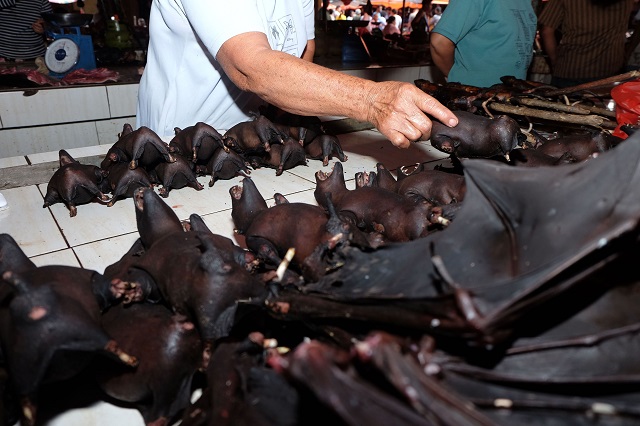
Kampala, Uganda | THE INDEPENDENT | Over 200 organizations from across the world are calling for a permanent ban on live wildlife markets and the use of wildlife in traditional medicine.
Their appeal to the World Health Organisation–WHO highlights that with the suspected COVID-19 link to a wildlife market in China, WHO must take action to protect human life from future pandemics. Research indicates that 60 percent of emerging infectious diseases are zoonotic, meaning that they originate from animals, with 70 percent of this thought to originate from wild animals.
In the instance of COVID-19, the disease is believed to have its origin in snakes, bats and pangolins, while the Severe Acute Respiratory Syndrome (SARS) which emerged from a market in China’s Guangdong province was linked to civet cats. Kevin Olival, an evolutionary biologist with an NGO Eco-Health Alliance believes that the consumption of live wild animals as well as the poorly regulated animal husbandry and unsanitary butcheries is a perfect storm for more viruses to emerge.
It’s on the basis of this that World Animal Protection, International Fund for Animal Welfare, Humane Society International, Born Free and Wild Aid among other organisations lodged the petition stating that while a robust global response is critical in detecting, treating and reducing transmission of COVID-19, it is equally necessary to take vital measures to prevent similarly emerging infectious diseases developing into pandemics with the associated threats to human life and social and economic well-being.
“The unregulated and unhygienic conditions associated with wildlife markets where close proximity between humans and animals provide the perfect opportunity for pathogens to spread. This risk is intensified by the conditions in which animals are handled at every stage of their journey to such markets, large numbers of animals of different species being held in crowded conditions in close proximity causing immense stress and weakening their immune systems,” the organisations said in a statement issued today.
Edith Kabesiime, the Wildlife Campaign Manager at World Animal Protection said that such conditions, coupled with close proximity to people at wildlife markets provides an ideal situation for pathogens to replicate, spread and potentially infect people. She tasked the World Health Organisation to unequivocally state the proven link between wildlife markets and the serious threats they can cause to human health.
“WHO can help prevent future pandemics by excluding the use of wildlife from their endorsement of traditional medicine. This could help save lives in the future and protect millions of wild animals that are unnecessarily and cruelly farmed or poached from the wild to supply this industry. Plant-based alternatives are recognized and available.” Kabesiime adds.
The organizations urged WHO to recommend to governments to address the potential risks to human health from the trade-in wildlife – including collection from the wild, ranching, farming, transport, and trade through physical or online markets for any purpose – and act to close down or limit such trade in order to mitigate those risks.
They also want the authorities to exclude the use of wildlife, including from captive-bred specimens, in the WHO’s definition and endorsement of Traditional Medicine and revise WHO’s 2014-2023 Traditional Medicine Strategy accordingly to reflect this change.
They are equally appealing for support and encouragement initiatives that deliver alternative sources of protein to subsistence consumers of wild animals, in order to further reduce the risk to human health.
******
URN
 The Independent Uganda: You get the Truth we Pay the Price
The Independent Uganda: You get the Truth we Pay the Price



